Mississippi Cannabis News
Trump’s Solicitor General Asks Supreme Court For More Time To Weigh Challenge To Gun Ban For Marijuana Consumers
Published
5 months agoon
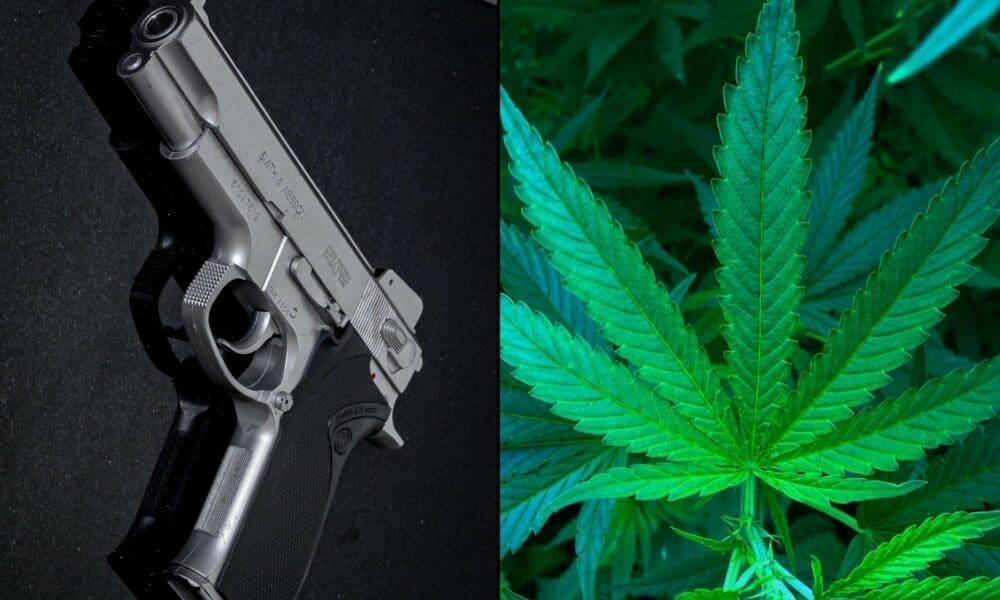
The government’s top lawyer is asking the Supreme Court for more time to consider whether to challenge a February appeals court ruling concerning the federal prohibition on gun ownership by people who consume marijuana. It’s the latest development in a series of recent cases around the constitutionality of the firearm restriction.
The new filing, from Solicitor General D. John Sauer, concerns a case in which the defendant, Keshon Daveon Baxter, was found in possession of both a firearm and a bag of marijuana. The government charged him under 18 U.S.C. § 922(g)(3), which prohibits gun ownership by “unlawful” users of controlled substances.
Baxter argued in district court that the prohibition was itself illegal, contending both that “unlawful” use was too vague in the statute to be enforceable and also that the government’s ban on drug users’ possession of firearms was unconstitutional under the Second Amendment.
The lower court rejected both arguments—a ruling Baxter appealed to the U.S. Circuit Court of Appeals for the Eighth Circuit.
It a February opinion, an Eighth Circuit panel upheld the portion of the district court’s decision denying Baxter’s vagueness claim but reversed the lower court’s ruling on the constitutionality of the firearms ban. However, judges wrote that there were insufficient factual findings in the record “for this Court to review Baxter’s as-applied Second Amendment challenge.”
Nevertheless, the Eighth Circuit wrote, “We reverse the district court’s ruling on Baxter’s as-applied Second Amendment challenge and remand to the district court for further proceedings consistent with this opinion.”
The federal government currently has until May 6 to decide whether to file a writ of certiorari asking the Supreme Court to review the appeals court ruling. The new filing from Sauer asks for a 30-day extension on that deadline.
“The Solicitor General has not yet determined whether to file a petition for a writ of certiorari in this case,” says the three-page request. “The additional time sought in this application is needed to continue consultation within the government and to assess the legal and practical impact of the court of appeals’ ruling.”
Sauer, an appointee of President Donald Trump, formally assumed his role as solicitor general earlier this month. He previously helped represented Trump in his landmark case on presidential immunity.
One risk to appealing the ruling is that if the Supreme Court does take the case, justices may in fact rule unfavorably to the government, possibly cementing that § 922(g)(3) is—in at least some cases—unconstitutional.
A number of federal courts in recent months have cast doubt on the legality of § 922(g)(3), finding generally that while the ban on gun ownership among drug users may not be entirely unconstitutional, there’s scant historical precedent for such a broad restriction of Second Amendment rights on an entire a category of people.
Earlier this year, for example, a federal judge in Rhode Island ruled that the ban was unconstitutional as applied to two defendants, writing that the government failed to establish that the “sweeping” prohibition against gun ownership by marijuana users was grounded in historical precedent.
In another recent case, an Eighth Circuit panel dismissed a three-year prison sentence against a person convicted for possession of a firearm while being an active user of marijuana. Judges in that case ruled that government’s prohibition on gun ownership by drug users is justified only in certain circumstances—not always.
“Nothing in our tradition allows disarmament simply because [the defendant] belongs to a category of people, drug users, that Congress has categorically deemed dangerous,” their ruling said.
In another case earlier this year, a Fifth Circuit panel ruled that the firearms ban was unconstitutional as applied to least one defendant. That ruling came on the heels of a string of other judicial decisions casting doubt on the legality of the ban.
A federal judge in El Paso, for instance, ruled late last year that the government’s ongoing ban on gun ownership by habitual marijuana users is unconstitutional in the case of a defendant who earlier pleaded guilty to the criminal charge. The court allowed the man to withdraw the plea and ordered that the indictment against him be dismissed.
Another panel of judges, on the U.S. Court of Appeals for the Tenth Circuit, heard oral arguments in November in the government’s appeal of a district court ruling that deemed the gun ban unconstitutional.
Much of the panel’s discussion at oral argument in that case surrounded whether the underlying dispute was a facial challenge to the gun ban or an as-applied challenge. And, as in other cases, judges zeroed in on whether or not that defendant was actually under the influence of marijuana while in possession of a firearm.
In a separate federal court case, Department of Justice (DOJ) lawyers recently made arguments that the ongoing firearm restriction for cannabis users is “analogous to laws disarming the intoxicated” and other historical laws “disarming many disparate groups that the government believed presented a danger with firearms.”
That brief was the latest response to a case filed by a Pennsylvania prosecutor who’s suing the federal government over its ban on gun ownership by cannabis users. It came two weeks after lawyers for the official, Warren County District Attorney Robert Greene, asked the U.S. District Court for the Western District of Pennsylvania to allow the matter to proceed to trial.
In a number of the ongoing cases, DOJ has argued that the prohibition on gun ownership by marijuana users is also supported by a recent U.S. Supreme Court decision, U.S. v. Rahimi, that upheld the government’s ability to limit the Second Amendment rights of people with domestic violence restraining orders.
DOJ has made such arguments, for example, in favor of the firearms ban in a case in a case in the U.S. Court of Appeals for the Eleventh Circuit. In that matter, a group of Florida medical cannabis patients contends that their Second Amendment rights are being violated because they cannot lawfully buy firearms so long as they are using cannabis as medicine, despite acting in compliance with state law.
DOJ under President Joe Biden consistently argued that medical marijuana patients who possess firearms “endanger public safety,” “pose a greater risk of suicide” and are more likely to commit crimes “to fund their drug habit.”
It remains unclear how the Trump administration will approach the cases. At a NRA conference in 2023, Trump suggested there might be a link between the use of “genetically engineered” marijuana and mass shootings. He listed a number of controversial and unproven factors that he said at the time he would direct the Food and Drug Administration (FDA) to investigate as possibly causing the ongoing scourge of mass shooting afflicting the country.
“We have to look at whether common psychiatric drugs, as well as genetically engineered cannabis and other narcotics, are causing psychotic breaks” that lead to gun violence, he said.
DOJ has claimed in multiple federal cases over the past several years that the statute banning cannabis consumers from owning or possessing guns is constitutional because it’s consistent with the nation’s history of disarming “dangerous” individuals.
In 2023, for example, the Justice Department told the U.S. Court of Appeals for the Third Circuit that historical precedent “comfortably” supports the restriction. Cannabis consumers with guns pose a unique danger to society, the Biden administration claimed, in part because they’re “unlikely” to store their weapon properly.
Last year, Biden’s son Hunter was convicted by a federal jury of violating statute by buying and possessing a gun while an active user of crack cocaine. Two Republican congressmen challenged the basis of that conviction, with one pointing out that there are “millions of marijuana users” who own guns but should not be prosecuted.
The situation has caused confusion among medical marijuana patients, state lawmakers and advocacy groups, among others. The National Rifle Association’s (NRA) lobbying arm said recently that the court rulings on the cannabis and guns issue have “led to a confusing regulatory landscape” that have impacted Americans’ Second Amendment rights.
“Marijuana use is no longer limited to the domain of indigenous religious customs or youth-oriented counterculture and now includes a wide variety of people who use it for medicinal or recreational reasons,” said the advocacy group, which does not have an official stance on cannabis policy generally. “Many of these individuals are otherwise law-abiding and productive members of their communities and want to exercise their right to keep and bear arms.”
Meanwhile, some states have passed their own laws either further restricting or attempting to preserve gun rights as they relate to marijuana. Recently, for example, a Pennsylvania lawmaker introduced a bill meant to remove state barriers to medical marijuana patients carrying firearms.
Colorado activists also attempted to qualify an initiative for November’s ballot that would have protected the Second Amendment rights of marijuana consumers in that state, but the campaign’s signature-gathering drive ultimately fell short.
As 2024 drew to a close, the ATF issued a warning to Kentucky residents that, if they choose to participate in the state’s medical marijuana program that’s set to launch imminently, they will be prohibited from buying or possessing firearms under federal law.
The official said that while people who already own firearms aren’t “expected to” turn them over if they become state-legal cannabis patients, those who “wish to follow federal law and not be in violation of it” must “make the decision to divest themselves of those firearms.”
Since then, bipartisan state lawmakers have introduced legislation that would urge Kentucky’s representatives in Congress to amend federal law to clarify that users of medical marijuana may legally possess firearms, though no action has since been taken on that bill.
Kentucky Gov. Andy Beshear (D) said in January that he supported the legislature’s effort to urge the state’s congressional delegation to call for federal reforms to protect the Second Amendment rights of medical marijuana patients, but the governor added that he’d like to see even more sweeping change on the federal level.
“I think the right way to deal with that is not just to focus on that issue, but to change the schedule of marijuana,” Beshear said at a press conference. “What we need to change is the overall marijuana policy by the federal government.”

Author: mscannabiz.com
MScannaBIZ for all you Mississippi Cannabis News and Information.
You may like
-
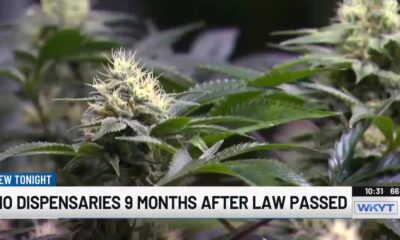

Kentucky still waiting on medical marijuana dispensaries 9 months after law passed
-


Can LSD Battle Anxiety? The Answer Is Yes, According to Science
-


Six hurt in shooting at marijuana event in SF's Bayview
-


Kentucky Medical Marijuana Dispensaries Should Be Stocked With Products Ready For Sale By Next Month, Top State Official Says
-


Deputies: 3,500 child sex abuse images, marijuana grow operation found in NC home raid
-


Regulators Ready to Enforce Cannabis Laws on Hemp THC Retailers in Maryland
Mississippi Cannabis News
Dozen arrested after south Mississippi bust for illegal sales to underage customers
Published
18 hours agoon
September 14, 2025
An investigation into south Mississippi businesses selling “alcohol, dangerous illegal vapes, THC edibles,” and other age-restricted or illegal items to underage customers has resulted in at least a dozen arrests with more possible, according to law enforcement.
An announcement by the Perry County Sheriff’s Office said deputies began an investigation in early 2024 after fielding complaints that some businesses in the county were purposely allowing individuals under the age of 21 to purchase age-restricted products.
Sheriff Jacob Garner said as the investigation unfolded, it quickly became clear that the issue was not restricted to Perry County. Law enforcement in nearby Forrest, Lamar, Marion, Greene, Jefferson Davis, and Jones counties had received similar complaints about businesses in their jurisdictions.
Local agencies teamed up with the U.S. Drug Enforcement Agency for over a year’s worth of identifying subjects, initiating traffic stops, and fielding more calls for service. It culminated on Sept. 11 after 20 search warrants were carried out, with 12 individuals being arrested for their involvement in the businesses selling alcohol, tobacco, and THC to minors.
RELATED: Parents urged to talk with students about tobacco risks
“Anyone who chooses to open a business in Perry County for the purpose of selling illegal narcotics, vapes, or THC products to children or adults will be arrested and prosecuted,” Garner said. “These items – disguised as safe or legal – are destroying lives and endangering the health and safety of our citizens. Business owners profiting off the harm of our children and adults in our county will be prosecuted to the fullest extent of the law.”
Garner added that many of the defendants, while operating in different counties, were working in tandem. The Mississippi Bureau of Narcotics, the Mississippi Bureau of Investigation, and the Mississippi Highway Patrol aided in the investigation that remains active.
The following list of arrests and charges has been announced by the involved law enforcement agencies:
- Khaled Alhamidi, 55, of Petal: Two counts of aggravated trafficking of a controlled substance, trafficking while in possession of a firearm, and conspiracy to sell a controlled substance.
- Akram Alhamidi, 25, of Petal: Two counts of aggravated trafficking of a controlled substance, trafficking while in possession of a firearm, and conspiracy to sell a controlled substance.
- Omar Obaid, 40, of Hattiesburg: Two counts of aggravated trafficking of a controlled substance.
- Gaizan Abubaker, 37, of Houma, La.: Two counts of aggravated trafficking of a controlled substance.
- Rami Selah, 32, of Petal: Two counts of aggravated trafficking of a controlled substance, trafficking of a controlled substance while in possession of an enhanced firearm.
- Bassel Saleh, 53, of Petal: Two counts of aggravated trafficking of a controlled substance.
- Mark Shaibi, 24, of Petal: Two counts of aggravated trafficking of a controlled substance, trafficking of a controlled substance while in possession of a firearm.
- Gabr Al-Gabri, 36, of Petal: Two counts of aggravated trafficking of a controlled substance, trafficking of a controlled substance while in possession of an enhanced firearm.
- Basel Rashad, 30, of Petal: Two counts of aggravated trafficking of a controlled substance, trafficking while in possession of a firearm.
- Anmed Elgabry, 30, of Petal: Two counts of aggravated trafficking of a controlled substance, trafficking of a controlled substance while in possession of an enhanced firearm.
- Mohammed Riyadh, 31, of Hattiesburg: Two counts of aggravated trafficking of a controlled substance.
- Ahmedou Mohamedlaamar, 22, of Perry County: Aggravated trafficking of a controlled substance.

Author: mscannabiz.com
MScannaBIZ for all you Mississippi Cannabis News and Information.
Mississippi Cannabis News
US marijuana laws explained as Donald Trump reveals plans for change
Published
4 days agoon
September 12, 2025
Donald Trump is reportedly looking at reclassifying marijuana as a less dangerous drug in the US.
According to an article in the Wall Street Journal, the 79-year-old president is ‘looking at’ making a huge change, which would make it easier to buy and sell weed, making the multibillion-dollar industry more profitable.
The publication’s sources claimed that during a recent fundraiser held at his New Jersey golf club, where tickets for the event went for a whopping $1 million each, the Republican leader first spoke of the potential plans.
He allegedly said he was ‘looking at’ possibly changing the classification of marijuana from a Schedule I controlled substance to a Schedule III substance.
In simple terms, this doesn’t mean it would make the drug completely legal across the US, but it would help ease restrictions on it.

Donald Trump is reportedly considering whether to reclassify marijuana in the US (Bloomberg/Getty Images)
At the event, speaking of tweaking the federal restrictions for the drug, Trump allegedly said: “We need to look at that. That’s something we’re going to look at.”
Then, according to The Telegraph, speaking at a press conference on Monday, the US president affirmed: “We’re looking at reclassification, and we’ll make a determination over, I’d say, the next few weeks.”
He reportedly added that the decision is ‘very complicated’ – so, let’s break it down.
How do US marijuana laws work?
At a federal level, marijuana remains illegal in the US as per the 1970 Controlled Substances Act, however, many states have made their own rules for cannabis use.
As we mentioned earlier, it’s federally classified as a Schedule I drug – this means that federal law considers it to have a ‘high potential for abuse’ and ‘no currently accepted medical use in treatment in the United States’.
But, despite its federal classification, 24 states plus the District of Columbia have fully legalised weed, meanwhile others have opted to only allow it for medicinal purposes.
Cannabis legalisation in individual states can be done in a number of ways, ranging from fully illegal to legal for both medicinal and recreational use.
If you’re in a state that has completely legalised recreational marijuana and you’re 21 or older, you have the right to use cannabis products for your own personal enjoyment.
However, this doesn’t always mean it’s legal to purchase – confusing, I know.
For example, while it’s illegal to buy marijuana in Washington, DC, it’s legal for anyone 21 and older to possess up to two ounces of it and grow up to six marijuana plants in the district.
So essentially, it’s all down to the state you’re in and their specific regulations.
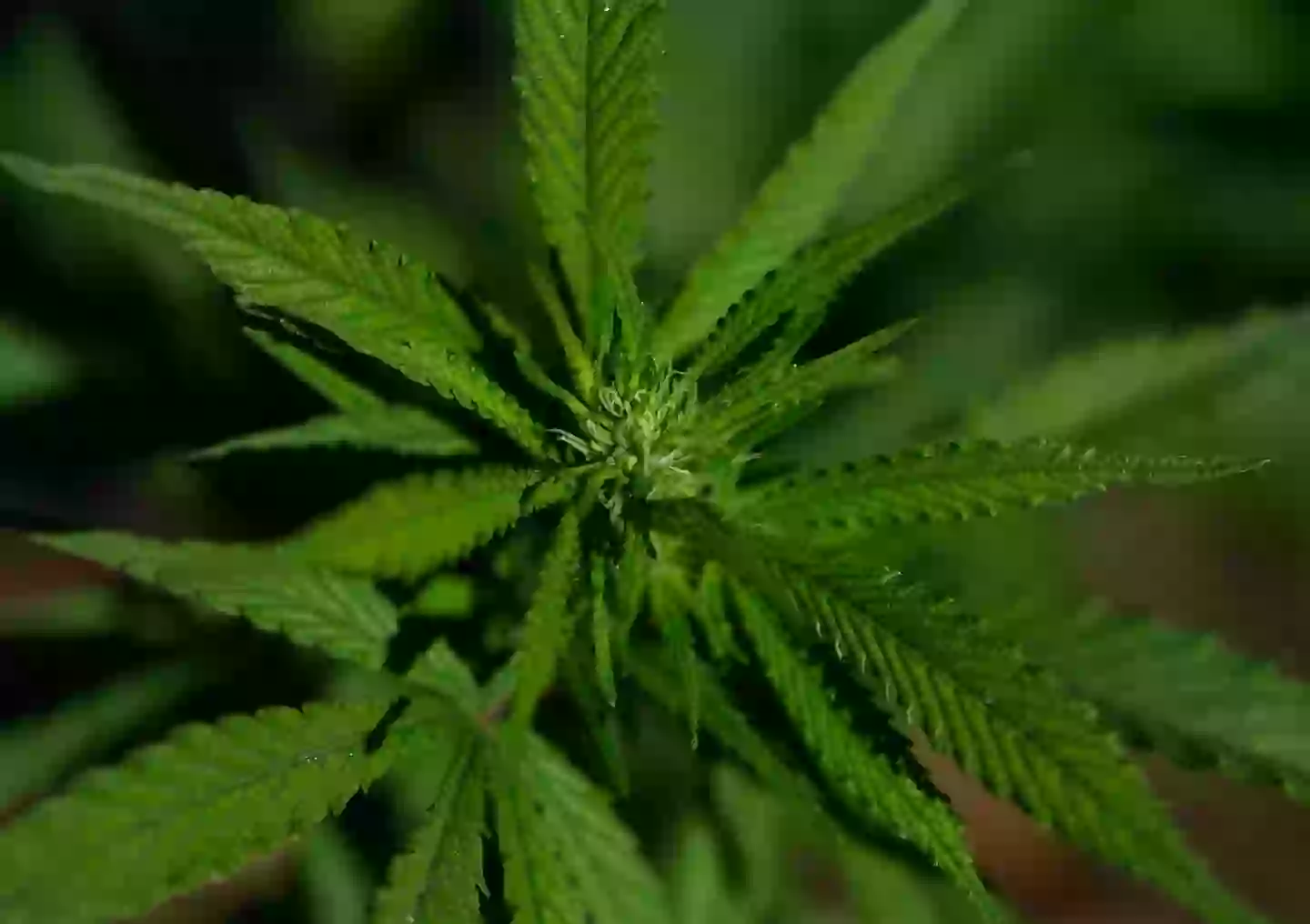
America’s cannabis laws can be a tricky subject to wrap your head around (Justin Sullivan/Getty Images)
What would happen if marijuana became a Schedule III drug?
If Trump were to go ahead and reclassify marijuana as a Schedule III drug, this would be a pretty big change up and down America.
According to the US government’s website, Schedule III drugs are defined as drugs ‘with a moderate to low potential for physical and psychological dependence’ and their ‘abuse potential is less than Schedule I and Schedule II drugs’.
Some examples of Schedule III drugs are products containing less than 90 milligrams of codeine per dosage unit, such as Tylenol with codeine, ketamine, anabolic steroids, and testosterone.
Meanwhile, Schedule I drugs are defined as drugs with no currently accepted medical use and a high potential for abuse.
Some examples include heroin, LSD, ecstasy, and as of right now, marijuana.
It’s important to note that the switch up would not make marijuana completely legal – it would just help ease restrictions and create more opportunities for medical uses and possible tax breaks for marijuana companies.
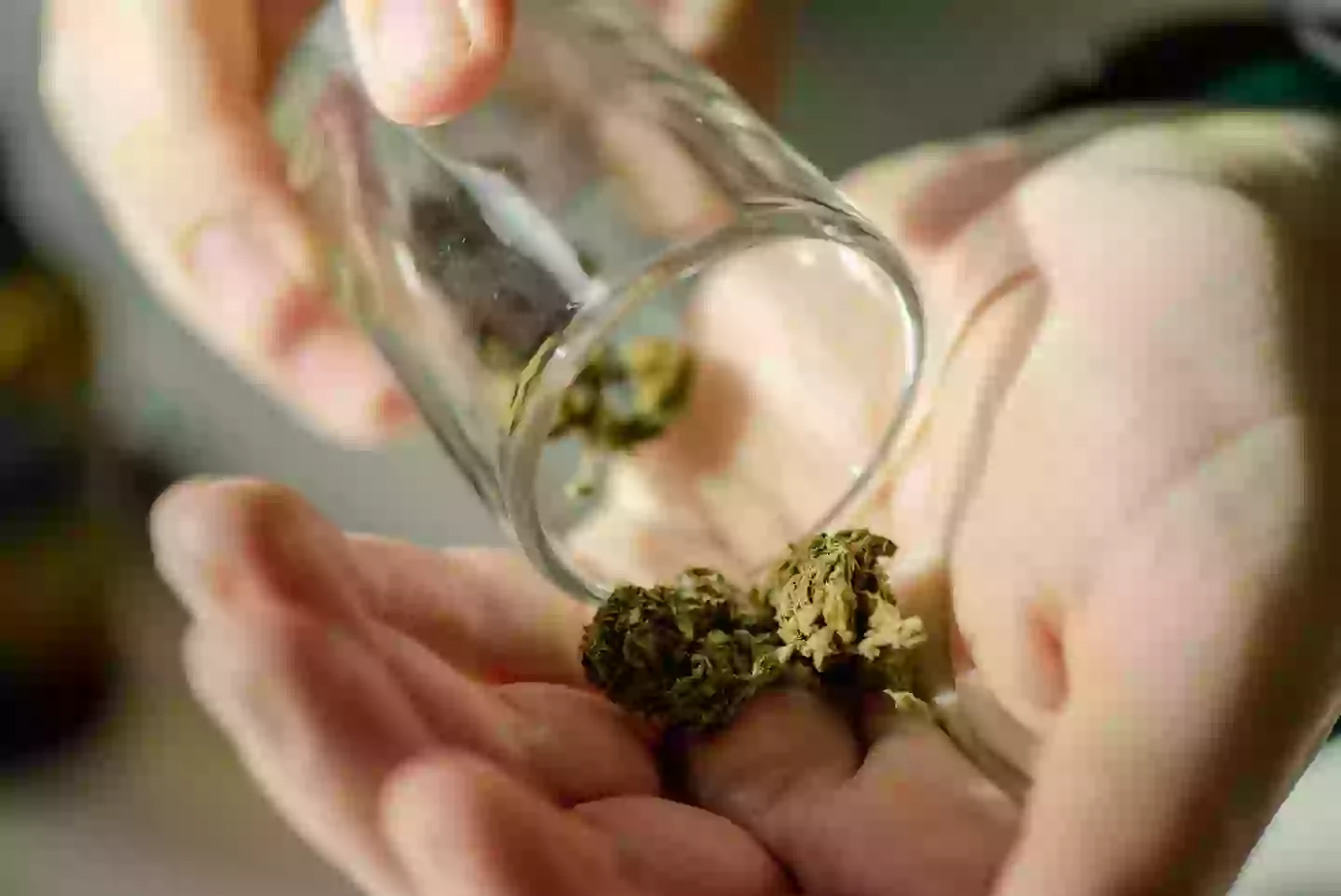
The Republican leader is said to be ‘looking at’ possibly switching marijuana from a Schedule I drug to a Schedule III drug (Emilija Manevska/Getty Images)
Which US states is marijuana currently legal in?
States where marijuana is fully legal:
- Alaska
- Arizona
- California
- Colorado
- Connecticut
- Delaware
- District of Columbia
- Illinois
- Maine
- Maryland
- Massachusetts
- Michigan
- Minnesota
- Missouri
- Montana
- Nevada
- New Jersey
- New Mexico
- New York
- Ohio
- Oregon
- Rhode Island
- Vermont
- Virginia
- Washington
States where marijuana is legal for medical purposes only:
- Alabama
- Arkansas
- Florida
- Georgia (CBD oil only)
- Hawaii
- Indiana (CBD oil only)
- Iowa (CBD oil only)
- Kentucky
- Louisiana
- Mississippi
- New Hampshire
- North Dakota
- Oklahoma
- Pennsylvania
- South Dakota
- Tennessee (CBD oil only)
- Texas
- Utah
- West Virginia
- Wisconsin (CBD oil only)
- Wyoming (CBD oil only)

Author: mscannabiz.com
MScannaBIZ for all you Mississippi Cannabis News and Information.
Mississippi Cannabis News
D.C. board rejects ANC 5A challenge to new medical cannabis retailer
Published
4 days agoon
September 12, 2025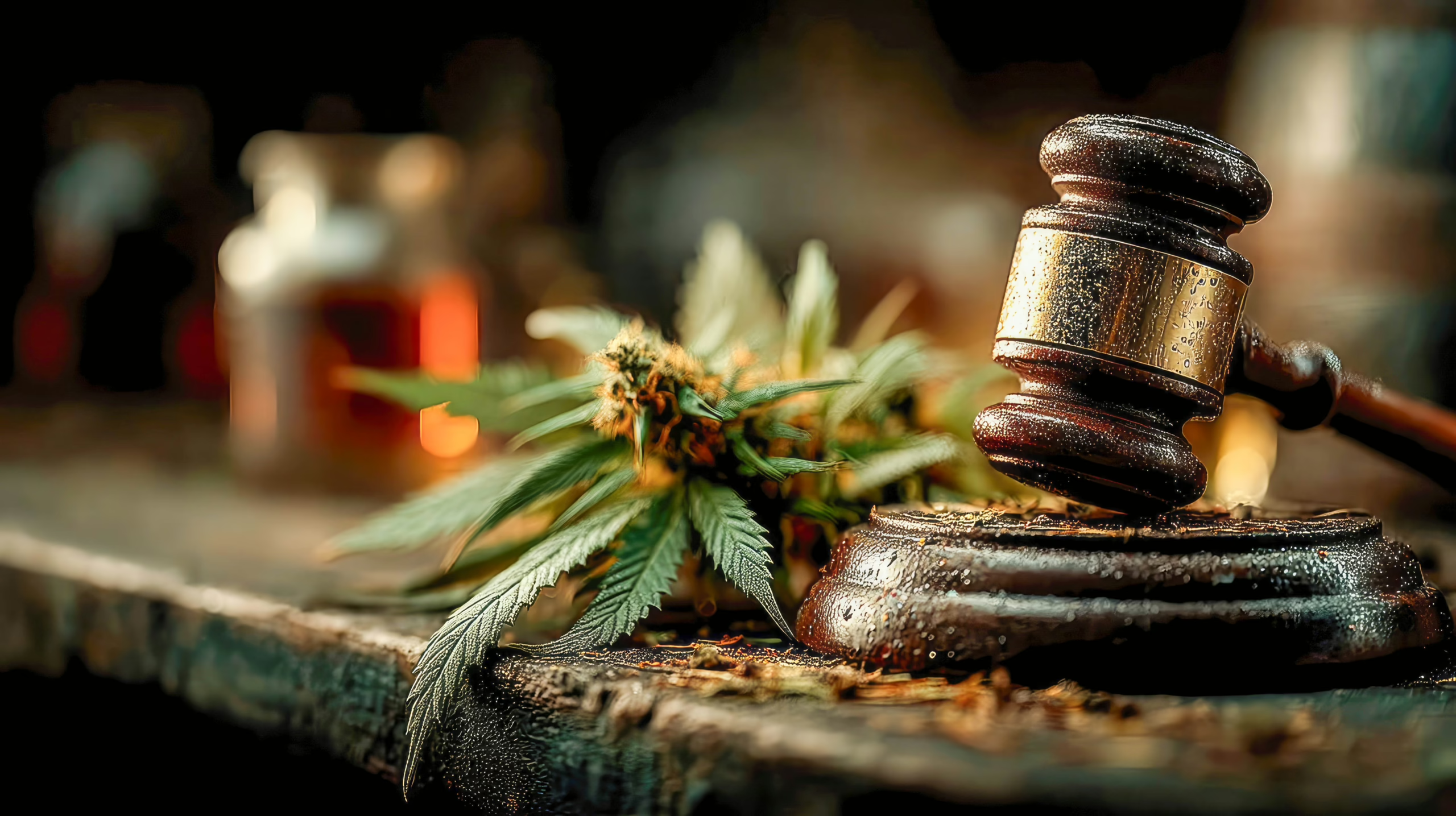
D.C. board rejects ANC 5A challenge to new medical cannabis retailer in Ward 5
The D.C. Alcoholic Beverage and Cannabis Board has rejected ANC 5A’s bid to reinstate its protest against a new Clinical Solutions medical cannabis dispensary in Ward 5, ruling that the ANC’s objections about daycare proximity and safety lacked the specific statutory grounds required to proceed; the license application remains on track, though the decision can still be appealed.
- Alt Sol was featured by wtop News.
- Catch up on today’s ABC Board meeting: watch, agenda.
- Sept. 24, Black Cannabis Week’s D.C. event, “From Prohibition to Policy.”
- A GOP-led House committee is advancing a bill to repeal Washington, D.C.’s Second Chance Amendment Act—which automatically expunges past cannabis possession records—framing the move as part of a broader “restoring law and order” initiative.
Workers protest at Maryland dispensary grand reopening over labor disputes
Cannabis workers and community members protested outside The Apothecarium’s grand reopening in Cumberland, Md., on Sept. 5, alleging the company engaged in union-busting and stalled contract negotiations since employees voted to unionize last year. UFCW Local 27 says workers are demanding fair pay and just cause protections, while the company has not yet issued a response.
Virginia’s 2025 gubernatorial race may decide future of legal cannabis market
Over half of Virginians have used cannabis, but the state currently lacks a legal retail market, though a bipartisan commission is studying its potential and the issue is expected to hinge on the 2025 gubernatorial election. Democratic candidate Abigail Spanberger supports establishing a regulated retail market to boost revenue and public safety, while Republican nominee Winsome Earle-Sears opposes legalization, citing cannabis as a gateway drug.
ICYMI: D.C. Dispensaries Boom, Trulieve Expands, Virginia Cannabis Hits a Turning Point
East Coast Roundup
Once a dominant force in Massachusetts‘ cannabis industry, Fitchburg-based Rev Clinics supplied products to approximately 75% of the state’s dispensaries. However, the company has faced significant challenges leading to its collapse.
A CBD shop in Connecticut shut down following allegations of illegal cannabis sales. The owner has agreed to a settlement.
New York’s licensed cannabis sales surpassed $2.09 billion, with over $1 billion generated in 2025 alone, indicating a robust and expanding market despite market turmoil.
The New York State Office of Cannabis Management announced the transition to the Metrc system for tracking cannabis from seed to sale will start in 2026.
Delaware’s recreational cannabis market achieved $7.3 million in sales during its inaugural month, signaling a strong consumer demand.
The Massachusetts Attorney General certified 44 ballot proposals for the 2026 election, including one aiming to repeal the state’s 2016 law legalizing recreational marijuana sales. This proposal, led by Sudbury resident Caroline Alcock Cunningham, seeks to shut down recreational dispensaries and impose civil penalties for public possession exceeding one ounce.
Culture & More
A new report highlights a significant rise in cannabis use among Americans aged 65 and older, with a 46% increase between 2021 and 2023.
USF Credit Union has introduced ‘Verde,’ a cannabis banking program aimed at providing financial services to the legal cannabis industry in Florida.
A new study found that THC can reach the human egg and may affect female fertility. Women who had THC in their follicular fluid showed a small increase in egg maturity but a lower rate of healthy embryos.
Around the Country
Mississippi’s medical cannabis program is expanding rapidly, with an average of 50 new patient cards issued daily. As of August 2025, the state has approximately 50,000 active cards, up from 40,000 in June 2024.
Texas retailers are relieved after the state legislature failed to pass a ban on THC products during the second special session. Despite this, Lt. Gov. Dan Patrick remains committed to a total ban, citing concerns over youth access.
California’s use of drones to monitor illegal cannabis cultivation led to unintended consequences, including the targeting of residents without cannabis operations. In Sonoma County, drone surveillance resulted in fines, evictions and legal battles for individuals who had no cannabis involvement.
From the swamp
Former Trump advisor Kellyanne Conway is reportedly a strong proponent of rescheduling cannabis, according to a GOP congressman. Her support adds a notable voice to the ongoing debate over federal cannabis policy reform.
OPINION: A Washington Post opinion piece argued that a loophole in the 2018 Farm Bill allows children access to psychoactive hemp-derived substances like delta-8 and delta-10 THC.
Employment Opportunity: DC Licensed Internet Retailer Dispensary Now Hiring. Contact info@getlocald.com to Learn More.

Author: mscannabiz.com
MScannaBIZ for all you Mississippi Cannabis News and Information.

Kentucky still waiting on medical marijuana dispensaries 9 months after law passed

Can LSD Battle Anxiety? The Answer Is Yes, According to Science

Six hurt in shooting at marijuana event in SF's Bayview

Kentucky Medical Marijuana Dispensaries Should Be Stocked With Products Ready For Sale By Next Month, Top State Official Says

Deputies: 3,500 child sex abuse images, marijuana grow operation found in NC home raid

Regulators Ready to Enforce Cannabis Laws on Hemp THC Retailers in Maryland

California reaps over $250 million from 2nd Quarter cannabis sales

Meet the World’s First Cannabis Rugby Team: Crewmen 7’s Tackle Stigma Head-On

Texas Supreme Court Refuses To Take Up Marijuana Case Challenging State’s Rejection Of Local Decriminalization Law

California Passes Bill to Ban Intoxicating Hemp Products Outside Cannabis Market

Pending Federal Hemp Legislation Could Reshape The Legal Industry By Banning Some Products (Op-Ed)

Verano Proposes to Redomicile Parent Company From British Columbia to Nevada

8,000 cannabis plants seized from illegal Bradford grow-op

New York Lawmakers Schedule Psychedelics-Focused Hearing To Discuss ‘Medicinal Value And Risks’ Of Psilocybin

Curaleaf Opens Cannabis Dispensaries in Florida, Ohio

How to Protect Your Outdoor Cannabis Crops From Pests

Feds provide anti-cannabis group a platform to bash legalization (Newsletter: September 15, 2025)

Dozen arrested after south Mississippi bust for illegal sales to underage customers

The Toking Traveler: Why Amsterdam Weed Is Mostly Boof

Arkansas Medical Marijuana Sales Are On Track To Set A New Annual Record

When Cannabis Brands Blur Into Youth Culture, Regulators Notice: Lessons From Tobacco’s Past

Rhode Island Marijuana Dispensary License Application Process Officially Launches

Middle school student found with cannabis in bookbag, Charles County deputies say

Smugglers who brought drugs on an industrial scale into Wales jailed

Alert: Department of Cannabis Control updates data dashboards with full data for 2023

Connecticut Appoints The US’s First Cannabis Ombudsperson – Yes there is a pun in there and I’m Sure Erin Kirk Is Going To Hear It More Than Once!

5 best CBD creams of 2024 by Leafly

EU initiative begins bid to open access to psychedelic therapies
New Study Analyzes the Effects of THCV, CBD on Weight Loss

Free delta-9 gummies from Bay Smokes

Discover New York’s dankest cannabis brands [September 2024]

5 best autoflower seed banks of 2024 by Leafly

Press Release: CANNRA Calls for Farm Bill to Clarify Existing State Authority to Regulate Hemp Products

Curaleaf Start Process Of Getting Their Claws Into The UK’s National Health System – With Former MP (Resigned Today 30/5/24) As The Front Man

May 2024 Leafly HighLight: Pink Runtz strain

Local medical cannabis dispensary reacts to MSDH pulling Rapid Analytics License – WLBT

Recreational cannabis on ballot for third time in South Dakota

5 best THC drinks of 2024 by Leafly

Horn Lake denies cannabis dispensary request to allow sale of drug paraphernalia and Sunday sales | News

Mississippi city official pleads guilty to selling fake CBD products

6 best CBD gummies of 2024 by Leafly

Nevada CCB to Accept Applications for Cannabis Establishments in White Pine County – “Only one cultivation and one production license will be awarded in White Pine County”

The Daily Hit: October 2, 2024

5 best delta-9 THC gummies of 2024 by Leafly

Weekly Update: Monday, May 13, 2024 including, New Guide for Renewals & May Board meeting application deadline

PRESS RELEASE : Justice Department Submits Proposed Regulation to Reschedule Marijuana

5 best THCA flower of 2024 by Leafly

People In This State Googled ‘Medical Marijuana’ The Most, Study Shows
Trending
-

 California Cannabis Updates1 year ago
California Cannabis Updates1 year agoAlert: Department of Cannabis Control updates data dashboards with full data for 2023
-

 Breaking News1 year ago
Breaking News1 year agoConnecticut Appoints The US’s First Cannabis Ombudsperson – Yes there is a pun in there and I’m Sure Erin Kirk Is Going To Hear It More Than Once!
-

 best list1 year ago
best list1 year ago5 best CBD creams of 2024 by Leafly
-

 Business12 months ago
Business12 months agoEU initiative begins bid to open access to psychedelic therapies
-

 cbd1 year ago
cbd1 year agoNew Study Analyzes the Effects of THCV, CBD on Weight Loss
-

 Bay Smokes1 year ago
Bay Smokes1 year agoFree delta-9 gummies from Bay Smokes
-

 cannabis brands12 months ago
cannabis brands12 months agoDiscover New York’s dankest cannabis brands [September 2024]
-

 autoflower seeds12 months ago
autoflower seeds12 months ago5 best autoflower seed banks of 2024 by Leafly


